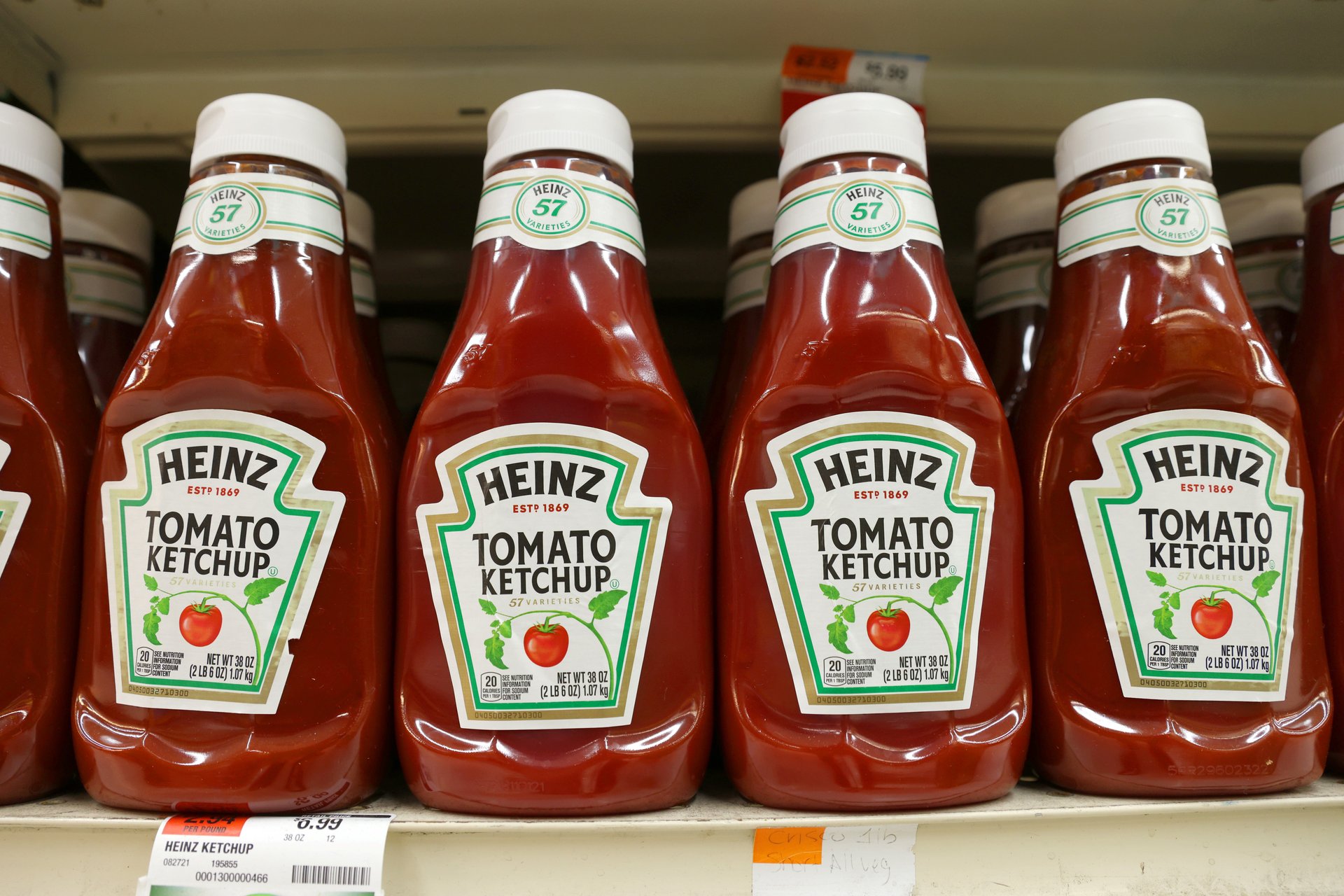Kraft Heinz is the latest food company to blame inflation for slumping sales
Kraft Heinz stock fell 5% in morning trading following is fourth-quarter earnings report


The Kraft Heinz company, the maker of pantry staples like Mac & Cheese, Kool-Aid, Jell-O, and a variety of condiments, is the latest food and beverage company to point the finger at inflation as the reason for slowing sales at the end of 2023.
Suggested Reading
“In the fourth quarter, the industry faced headwinds that were driven by ongoing consumer pressure,” Kraft Heinz CEO Carlos Abrams-Rivera said in the company’s fourth-quarter earnings report released Wednesday.
Related Content
Kraft Heinz’s fourth quarter by the numbers
Kraft Heinz’s profit fell 15% in in the quarter ending Dec. 30, to almost $757 million from $887 million in the same period the prior year. The company’s net sales fell 7% year-over-year to $6.9 billion in its fourth quarter, from $7.4 billion. In North America alone, sales were down over 9%.
Its earnings per share came to $0.78 slightly, beating Wall Street expectations of $0.77, according to a consensus estimate from analysts surveyed by Factset.
For the fiscal year 2024, the company projects its organic sales to remain flat or grow up to 2%.
Kraft Heinz stock fell about 5% during morning trading following the report.
Inflation blame game
“Regardless of the income level, that consumer is looking for value and and they continue to be under pressure,” Abrams-Rivera said Wednesday on a call with investors. “What we see is [that] low income consumers are actually shopping more at places like dollar stores, higher income consumers more at club stores.
Abrams-Rivera said that as consumers are making “smaller trips to stretch their dollar further,” the company will be delivering more value-conscious offerings in the coming year. For example, Kraft Heinz will be offering 20% more products at club store like Sam’s Club and Costco in 2024 compared with last year.
Kraft Heinz wasn’t the only food and beverage company to highlight inflation and consumer pressure as reasons for slowing sales in the fourth quarter.
“Organic volume performance was impacted by a moderation in category growth as consumer budgets have been affected by elevated borrowing costs and lower personal savings, which have driven preferences towards smaller pack sizes and immediate consumption channels,” PepsiCo said in its latest quarterly earnings report last week.
Hershey also pointed to inflation for higher chocolate prices and lower popcorn sales.